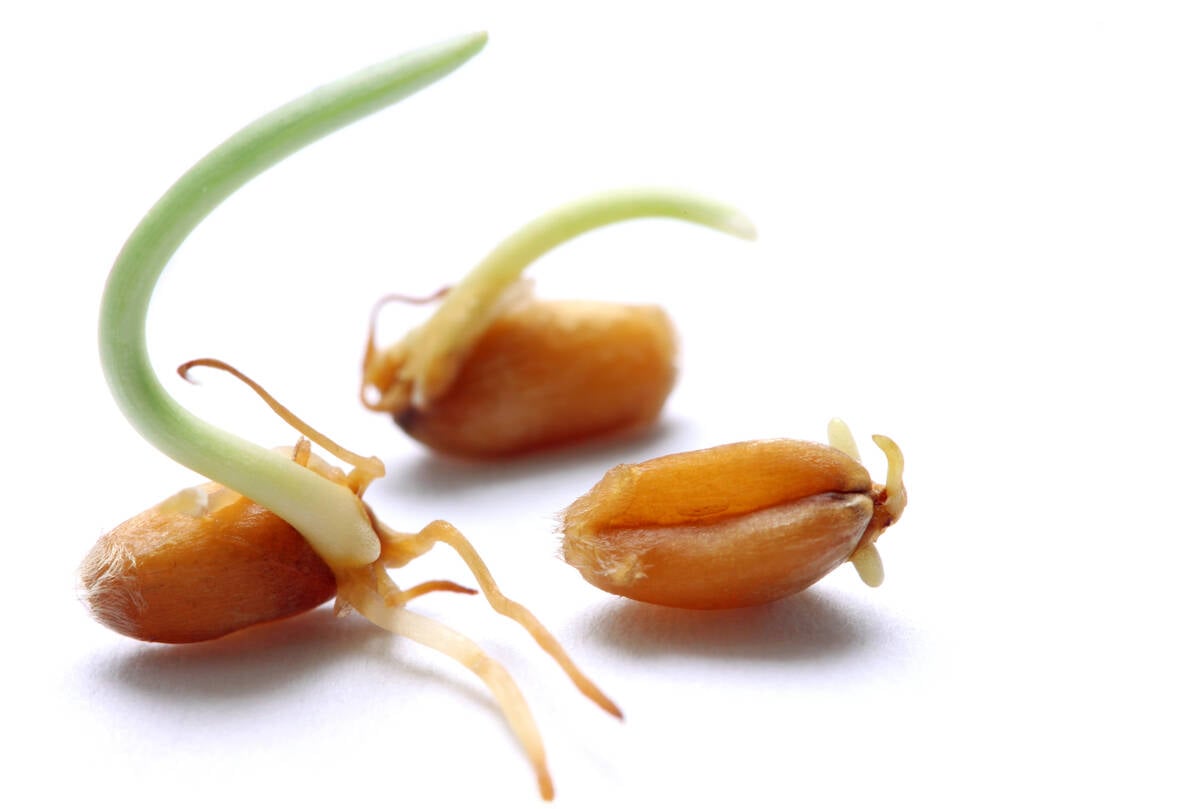PUERTO VALLARTA, Mexico – There is a good chance Canada will be locked out of one of its most important canola markets later this month.
China has set an April 20 deadline for developers of genetically modified crops to attain safety certificates required under new regulations.
“If they have not obtained the safety certificate, they will not be able to export GMO products to China after April 21,” said Shi Yanquan, head of China’s GMO office.
Speaking to a small contingent of reporters through an interpreter at the Canola Council of Canada’s 37th annual meeting, Shi said developers of 17 GMO products submitted their applications on time, five of which received the coveted certificates. One soybean, two corn and two cotton varieties were approved.
Read Also

Manitoba farmers fight sprouted wheat after rain
Rain in mid-September has led to wheat sprouting problems in some Manitoba farm fields.
The first batch of applications did not include any GM canola submissions.
“Due to various reasons some of the foreign developers have not been able to submit the necessary documentation in time.”
When asked to give a prognosis for Canadian canola exports given the looming deadline, Shi was not encouraging.
“I think there are several points of doubt still on the Chinese side,” he said.
“I cannot give you a specific time frame on when those doubts can be cleared.”
Officials have to fully assess the ecological and human health risks associated with GM canola. He said the pesticide DDT was once considered safe, but scientists and health officials now realize they were wrong.
“The same also applies to our understanding of GMOs, which are new to us. It will take some time and process to understand it.”
Canadian officials were taken aback by the revelation that developer certificates submitted by Monsanto and Bayer for Roundup Ready and Liberty Link canola may not receive approval before the April 20 deadline.
“It didn’t look like there were going to be any issues that were raised. This has actually happened within the last week and it has been a surprise to everybody,” said JoAnne Buth, vice-president of canola production with the canola council.
Buth said it is becoming clearer there will be a temporary disruption of canola exports to China.
“Essentially, we’re in trade limbo at that point.”
China has been a hot and cold buyer of Canadian product. When the Chinese are in the market, they are one of the top three buyers, accounting for 40 percent of seed exports in the 2000-01 crop year.
“It’s a huge market when the price is right,” said Buth.
Sales to China for the first half of the 2003-04 crop year have been strong with 360,000 tonnes of seed and another 36,000 tonnes of oil moving to that destination.
Buth said one reason the Canadian submissions were delayed was that Chinese officials asked Monsanto and Bayer to redo some rat feeding and environmental studies.
She remains hopeful the situation will be resolved within the “next month or so.”
“We’re going to do everything we can to ensure we’ve got these developer certificates as soon as possible.”
Council president Barbara Isman said she was assured by Chinese authorities attending the convention that oil trade will not be disrupted because there are no fears of environmental contamination with that product, but the seed situation remains uncertain.
Some convention delegates wondered if the certificate problems have anything to do with the fact that the Chinese canola crop starts coming off in April.
China is the world’s largest canola producer, accounting for one-third of total supply. It is all GM-free canola.















